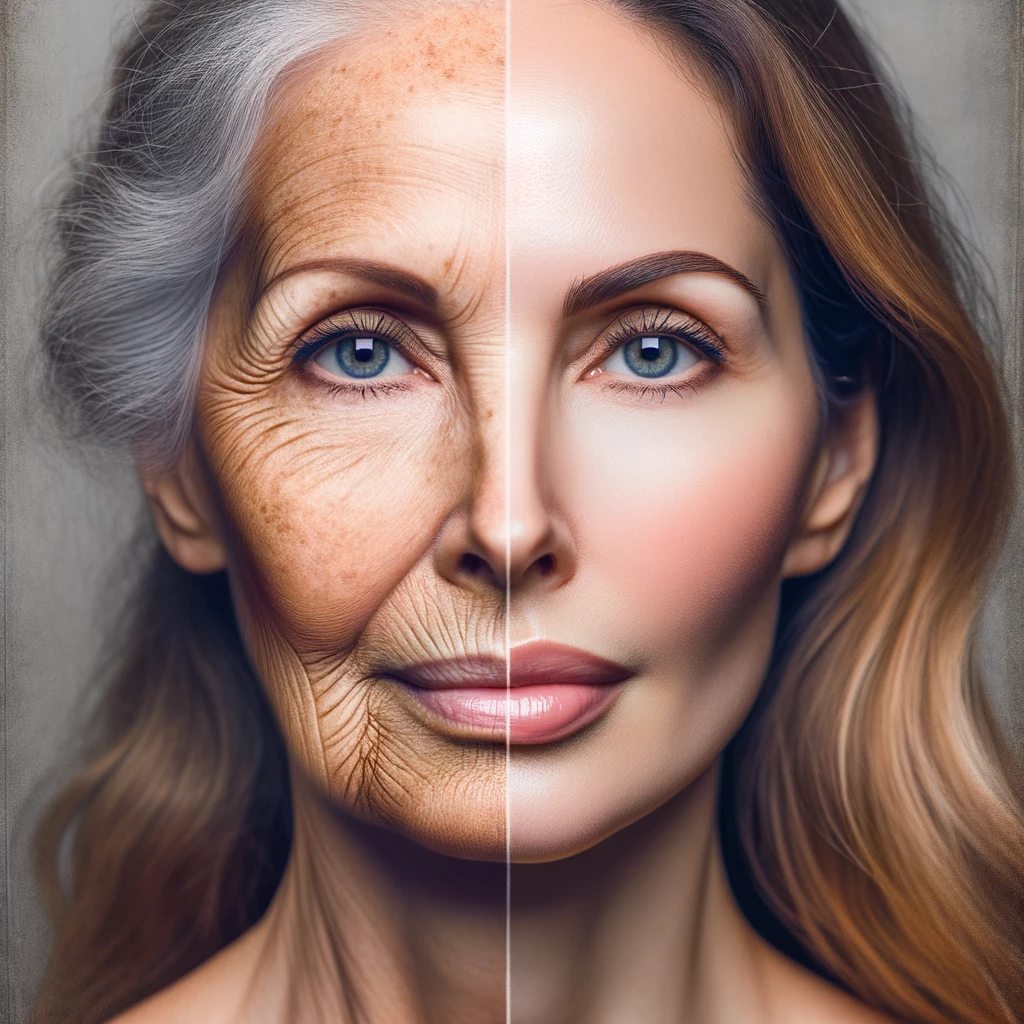
Diet for Healthy Skin: How Your Meals Can Affect Your Skin
Our skin is more than just an outer layer, it is the largest organ of the body and a mirror of our inner health. A balanced diet is essential not only for our overall health, but also for healthy, glowing skin. In this post, we’ll explore the intersection between nutrition and skin health and share practical nutrition tips that you can incorporate into your daily routine.
Key nutrients for radiant skin
- Vitamins A, C, E: Support cell production and protect the skin from free radicals.
- Zinc and Selenium: Promote healing and protect cells from damage.
- Omega-3 fatty acids: Known for their anti-inflammatory properties.
The basis of healthy skin lies in the nutrients we consume. Vitamins and minerals such as vitamin A, vitamin C, vitamin E, zinc and selenium are essential for skin health. They support cell production, promote healthy skin texture and protect the skin from harmful free radicals. Omega-3 fatty acids, known for their anti-inflammatory properties, are another important nutrient for healthy skin.
Foods for healthy skin
- Fruits and vegetables: Rich in antioxidants, vitamins and minerals.
- Fish, nuts and seeds: sources of omega-3 fatty acids.
- Superfoods: Avocado, berries and green tea provide a variety of nutrients
Nature provides an abundance of foods rich in the nutrients our skin needs. Fruits and vegetables are rich in antioxidants, vitamins and minerals that protect and nourish the skin. Fish, nuts and seeds provide essential fatty acids that promote skin health. Likewise, superfoods like avocado, berries, and green tea are fantastic options to nourish your skin from the inside out.
Individual nutrition tips for different skin types
- Dry skin: foods rich in omega-3 fatty acids and vitamin E.
- Oily skin: foods rich in vitamin A and zinc.
- Combination skin: A balanced diet with a variety of nutrients.
Every skin type has different needs. Individuals with dry skin could benefit from a diet rich in omega-3 fatty acids and vitamin E, while a diet rich in vitamin A and zinc can help regulate sebum production and keep oily skin at bay. For combination skin, a balanced diet with a variety of nutrients is the key to healthy skin.
Avoid skin problems with proper nutrition for healthy skin
- Avoid high-sugar foods and processed carbohydrates: These can promote inflammation.
- Include antioxidant foods: These protect the skin from oxidative stress.
A balanced diet can help prevent skin problems such as acne, eczema, and premature aging. It is advisable to avoid foods high in sugar and processed carbohydrates, as these can promote inflammation. The inclusion of antioxidant foods can help protect the skin from oxidative stress and reduce the appearance of acne and other skin problems.
Practical tips and simple recipe ideas for a skin-friendly diet
- Daily smoothie: With berries, spinach and avocado.
- Nut and Seed Snacks: A great source of healthy fats and vitamin E.
- Fish or lentil dishes: Provide the essential fatty acids and proteins your skin needs.
Incorporating skin-friendly foods into your daily diet can be easier than you think. A daily smoothie with berries, spinach, and avocado is a tasty and nutrient-dense option for healthy skin. Nut and seed snacks are a great source of healthy fats and vitamin E, while fish or lentil dishes provide the essential fatty acids and proteins your skin needs.
Our conclusion about nutrition for healthy skin
A nutrient-dense diet is the key to healthy, glowing skin. By incorporating the above nutrients and foods into your diet, you can pave the way to better skin health. Remember that true beauty comes from within, and your diet is an essential part of it.
With the right foods and nutrients, you can not only improve your skin, but also your overall health and put your best foot forward every day.